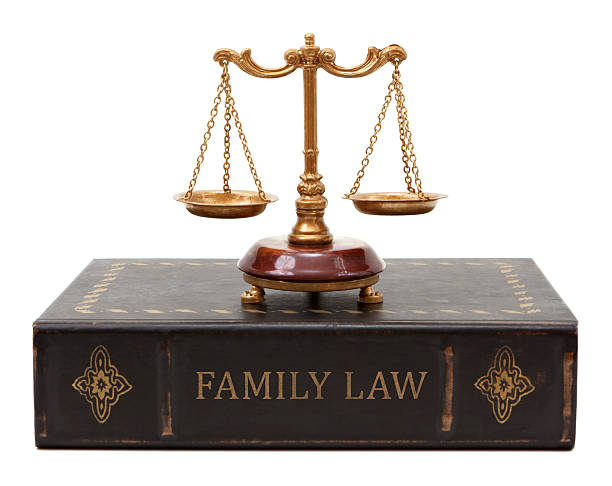The recognition of decrees made by foreign courts is one of the key provisions in the Family Law Act of 1975. This recognition is crucial as it ensures that the decisions that foreign courts make have effect in Australia. This article will discuss Sections 103 to 104A. These Sections provide for the rules on the recognition of decrees under the Family Law Act of 1975.
Kinds of Decrees in Australia
One of the critical aspects of the FLA is the issuance of decrees, which are legal orders that determine the rights and obligations of parties involved in family law matters. Authorities can issue several decrees under the Family Law Act of 1975.
1. Decree Nisi. A decree nisi is a provisional decree that becomes final after a specified period, usually one month and one day. Moreover, the court issues this when the parties have agreed to a divorce or dissolution of marriage.
2. Decree Absolute. A decree absolute is a final decree that ends the marriage or civil partnership. The court issues this after the specified period has elapsed from the decree nisi.
3. Decree of Nullity. A nullity decree invalidates a marriage or civil partnership. This can be provided if the marriage or civil partnership was never valid.
4. Decree of Judicial Separation. Judicial separation legitimately separates the parties without terminating the marriage or civil partnership. Courts can issue this if the parties choose to live apart but not divorce.
5. Decree of Alimony. One party must pay alimony to the other. This might be provided if one party needs financial support after the marriage or civil partnership.

Section 103: Effectivity of Decrees
Section 103 of the FLA provides for the extent of the effectivity of the decrees issued under the Act. It states that “a decree under this Act has effect throughout Australia and the external territories.” The external Territories administered by the Australian government are the following:
- Ashmore and Cartier Islands;
- Australian Capital Territory and Northern Territory;
- Coral Sea Islands;
- Indian Ocean Territories of Christmas Island and Cocos (Keeling) Islands;
- Jervis Bay Territory;
- Norfolk Island;
- Australian Antarctic Territory; and
- Heard Island and McDonald Islands.
Section 104: Overseas Decrees
An overseas decree is a court order that a foreign court makes that deals with family law matters. The issuance of an overseas decree to a person who is an Australian citizen can have an impact on their rights and obligations under the Family Law Act of 1975. Section 104 provides for the rules for the recognition of decrees in Australia and those made by foreign countries.
- Australia recognises foreign divorces, annulments, and legal separations, provided that the respondent or the applicant lived in the overseas jurisdiction at the relevant date (Section 104[3]);
- Foreign divorces, annulments, and legal separations are not valid if, under the standard law rules of private international law, the marriage would not be recognised as such because one of the parties was not given natural justice (Section 104[4]);
- Foreign divorces, annulments, and legal separation are not valid if it is clear that giving recognition would go against public policy (Section 104[4]);
- Any divorce, annulment of a marriage, or legal separation of the parties to a marriage that would be recognised as valid under the common law rules of private international law but to which none of the previous provisions of this section apply shall be recognised as valid in Australia, and the operation of this subsection shall not be limited by any implication from those provisions (Section 104[5]); and
- The annulment of marriage under Part V of the Marriage Act 1961 in another country because the formalities required by that country’s law were not followed will not be recognised in Australia (Section 104[6]).
How Are Overseas Decrees Recognised in Australia?
Under the Family Law Act, Australian authorities generally recognise and enforce an overseas decree in if it meets certain conditions.
- The overseas court must have had jurisdiction over the matter. This means that the foreign court must have had the power to hear and decide the case, either because of the residence or nationality of the parties or because the matter relates to property located in that foreign country.
- The overseas decree must be final and conclusive. This means that the foreign court’s decision must be final and binding on the parties. Parties cannot make any further appeals or challenges against it.
- The overseas decree must not contradict public policy or natural justice. This means that the foreign court’s decision must not violate fundamental legal principles or go against basic notions of fairness and justice.
Section 104A: Recognition in External Territories
Section 104A of the Act provides for the recognition of decrees in external Territories. It clarifies that, in this section, the term “external Territories” does not include Norfolk Island and that the word “overseas jurisdiction” does not include an external Territory.
Here are the rules on the recognition of decrees that this Section lays out:
1. Every external Territory will recognise as valid a divorce, annulment of a marriage, or legal separation of the parties to a marriage that was done according to the law of an overseas jurisdiction and is recognised as valid in Australia; and
2. Every external Territory will recognise as valid a divorce, annulment of a marriage, or legal separation of the parties to a marriage that was done according to the law of an external Territory and is recognised as valid in Australia.
To summarise, the recognition of decrees under the Family Law Act of 1975 allows parties to enforce decisions made in foreign courts and ensures that those decisions are recognised in Australia. This is particularly significant in family law matters, where parties may have connections to multiple countries, and decisions made in one country may have implications for parties living in another.

Seeking Legal Assistance in Family Law Matters
If you are in the midst of in a family lawsuit involving the recognition of decrees in Australia and those that foreign jurisdictions made, you must seek legal counsel to ensure that you safeguard your rights and interests.
Our team of skilled lawyers at JB Solicitors can assist you in resolving issues relating to recognition of decrees and family law. We ensure that we will fully protect your rights and interests in the process.
Contact us today.
